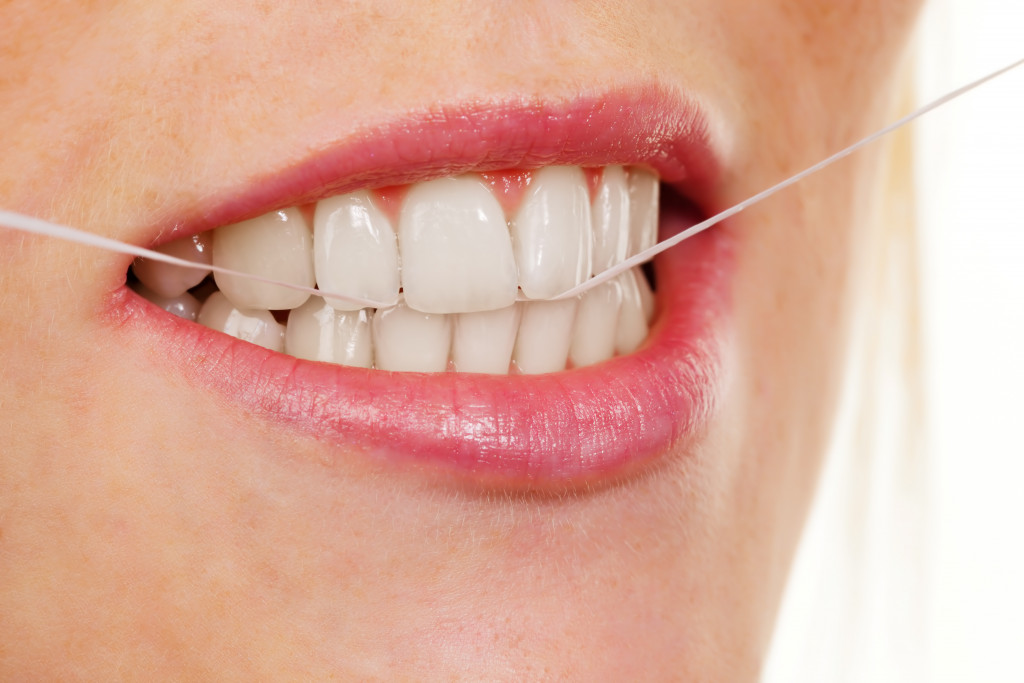Brushing your teeth might sound like the easiest thing to do. However, there are still plenty that tends to do it the wrong way. If your gums are swollen or bleeding, your teeth are loose, or you have foul breath all the time, you should see a dentist right away because you may be at risk for gum disease. Keeping your gums healthy may be as simple as remembering the following suggestions.
Brush Your Teeth Properly
Brushing your teeth at least twice a day will help keep your gums healthy. Fluoride toothpaste is recommended by the American Dental Association (ADA), as is replacing your toothbrush every three to four months or whenever the bristles begin to wear. The majority of people also neglect to clean the inner surfaces of their front teeth. Try doing this in a vertical direction with brief strokes on each tooth. For those with crooked teeth, you might want to have them checked by an orthodontist to prevent any possible bacteria build up on hard-to-reach areas.
Don’t make these mistakes when brushing your teeth:
1, Going Back and Forth
People make a common mistake when brushing their teeth — going from left to right and vice versa. When cleaning, always think massage instead of scrub. Always begin from the gum, then go up and down. You can also make small circular motions. If you brush your teeth the wrong way, it won’t help and may even do damage.
2. Picking the Wrong Brush
In choosing from the wide selection of brushes at the supermarket, make sure you decide on one that covers all the places that need covering. Those are the areas you could reach when using one. It can either be a manual toothbrush or a powered one. The head of the brush is also essential, especially if your mouth is small compared to most. They also differ in handles, angles, and flexibility. However, the critical part is the bristles. Stiff bristles don’t only clean less effectively, but they can also wear down the structure of your tooth.
3. Not Including the Gum Line
The most common area where bacteria often accumulate is where the tooth meets the gum. Most people miss that a lot. To get under the millimeter of gum tissue where the tooth comes out, you will need bristles that bend, which is why dentists recommend soft bristles than hard ones. Brushing your teeth means including the entire tooth. You can tilt your toothbrush up and down to reach your front teeth’s insides. Remember to brush your tongue as well to rid your mouth of bacteria.
4. Using the Toothbrush for Too Long
Once you find the right toothbrush, you might have a hard time giving it up. However, when you notice some changes in the bristles, such as discoloration, bending, and dirt, it might be time to throw it away. A toothbrush loses its function the moment the bristles become frayed, which is why dentists recommend a change in brush every three months or so.
Use Mouth Wash

If you already have gum disease, go for a medicinal mouthwash rather than a cosmetic one. In addition to lowering gum disease, therapeutic mouthwashes can help reduce plaque and tartar accumulation. On the other hand, Mouthwash is not a substitute for good oral hygiene practices such as brushing and flossing. You must do all three to keep your mouth healthy and clean. Keep in mind that when selecting a mouthwash, search for the ADA seal, just like you would when buying toothpaste.
Use Fluoride Toothpaste
Several types of toothpaste are available, each with its own unique formulation that can either positively or negatively influence your teeth. Toothpaste that contains baking soda, flavors, breath fresheners, and whitening agents are examples of this. It’s important to remember that fluoride is the ingredient in your toothpaste that shields your teeth from germs. The ADA stamp of approval is required for validity regardless of the brand.
Floss at Least Once a Day
Although flossing isn’t a habit for everyone, the American Dental Association says it’s critical for good dental health. The action helps remove food and plaque stuck between your teeth and gums that your toothbrush can’t reach. If you don’t remove them right away, tartar will form, and only a dentist can remove them. Gum disease is more likely to develop if tartar builds up in your mouth for an extended period. The ADA suggests flossing at least once a day, whether in the morning or at night.
Maintaining good dental health is critical, in part because our mouths are breeding grounds for germs. These pointers can help you avoid a trip to the dentist in the future, so keep them in mind and spread the word.
